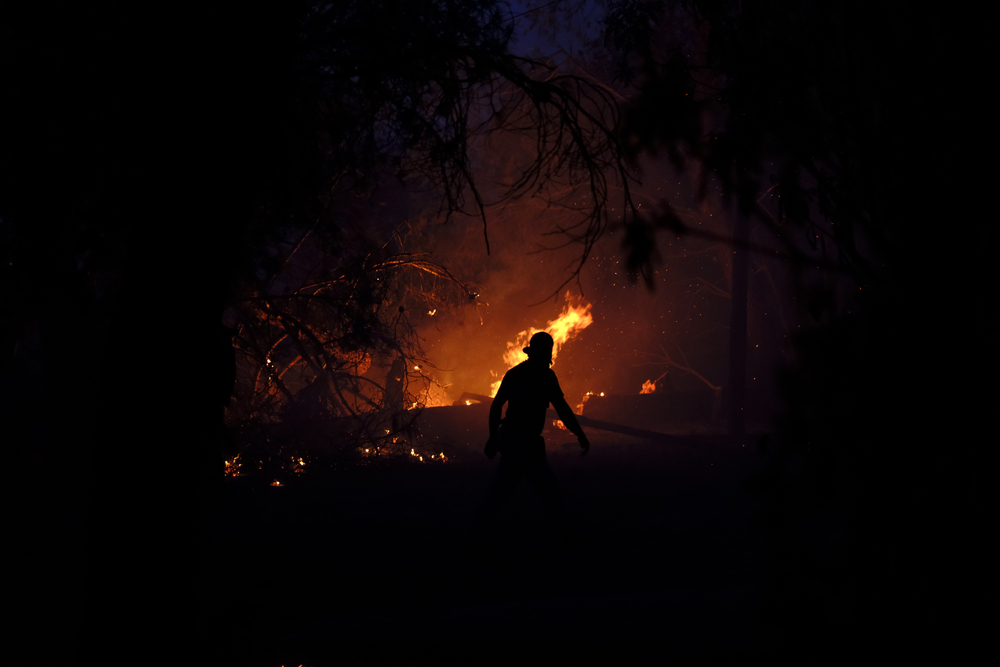Greece wildfires: More than 2000 evacuated as wildfires continue
- August 9, 2021
- 9:15 am


Iain Hoey
Share this content
Two people have died and more than 2000 people have been forced to evacuate their homes in Greece as wildfires caused by a severe heatwave continue to cause widespread disruption.
Apocalyptic scenes could be seen on the island of Evia, the second largest island in Greece, as the heavily forested island became engulfed by flames, destroying homes and causing locals to flee by boat.
Response to the fires has been difficult, with Greek responders struggling to cope with the increasing heat and intense flames as the devastation enters the second week. To help with the response, firefighters from the UK have now been sent to help assist a 570 person team already on the scene.
Teams from Merseyside, Lancashire, South Wales, London and West Midlands fire services arrived in Athens at the weekend. The National Fire Chiefs Council’s (NFCC) National Resilience team is responding to a formal request from the Home Secretary to give operational assistance to Greece.
The team of experts will be deployed alongside their Greek counterparts in tactical firefighting. Any team sent by NFCC is entirely self-sufficient; ensuring that no additional burden is placed upon a country already suffering demands on its resources when faced with the aftermath of sudden onset disasters.
Home Secretary Priti Patel said: “I’ve seen first-hand this week the devastating wildfires ripping through Greece and the UK stands shoulder to shoulder with our Greek friends at this difficult time.
“I’ve asked the National Fire Chiefs Council to send out a specialist team to provide support in responding to this emergency. I am immensely grateful to the brave firefighters for stepping forward and volunteering to help and their expertise will be invaluable in supporting the Greek emergency services.”
Elsewhere in Europe, France, Egypt, Switzerland and Spain have also stepped in to assist, with some sending firefighting aircraft over in an attempt to douse the flames.
In Athens, the fires have died down and been brought under control, however, officials have warned that extreme weather conditions mean that there is still a chance that the fire could set again. The country is currently seeing its worst heatwave in three decades, with temperatures in the country consistently hitting 40C.
EU continues to mobilise assistance for Greece
The EU Civil Protection Mechanism have continued to support Greece and the rest of the Mediterranean as the risk to life has increased. Following requests from Greece, North Macedonia, Albania, Italy and Turkey, the European Union has now helped mobilise 14 firefighting planes, 3 helicopters, some 1,300 rescuers and 250 vehicles.
In Greece alone, 9 planes, close to 1,000 fire fighters and 200 vehicles are currently being deployed. Commissioner for Crisis Management Janez Lenarčič said: “We are mobilising one of Europe’s biggest ever common firefighting operations as multiple fires affect several countries simultaneously. This shows the need to prioritise crisis response also at European level. The EU stands in full solidarity with Greece, North Macedonia, Albania, Italy and Turkey, at this difficult time. I am very thankful to all the countries who have offered help for their tangible solidarity. Our thoughts are with all those affected and with the first responders who are risking their live



